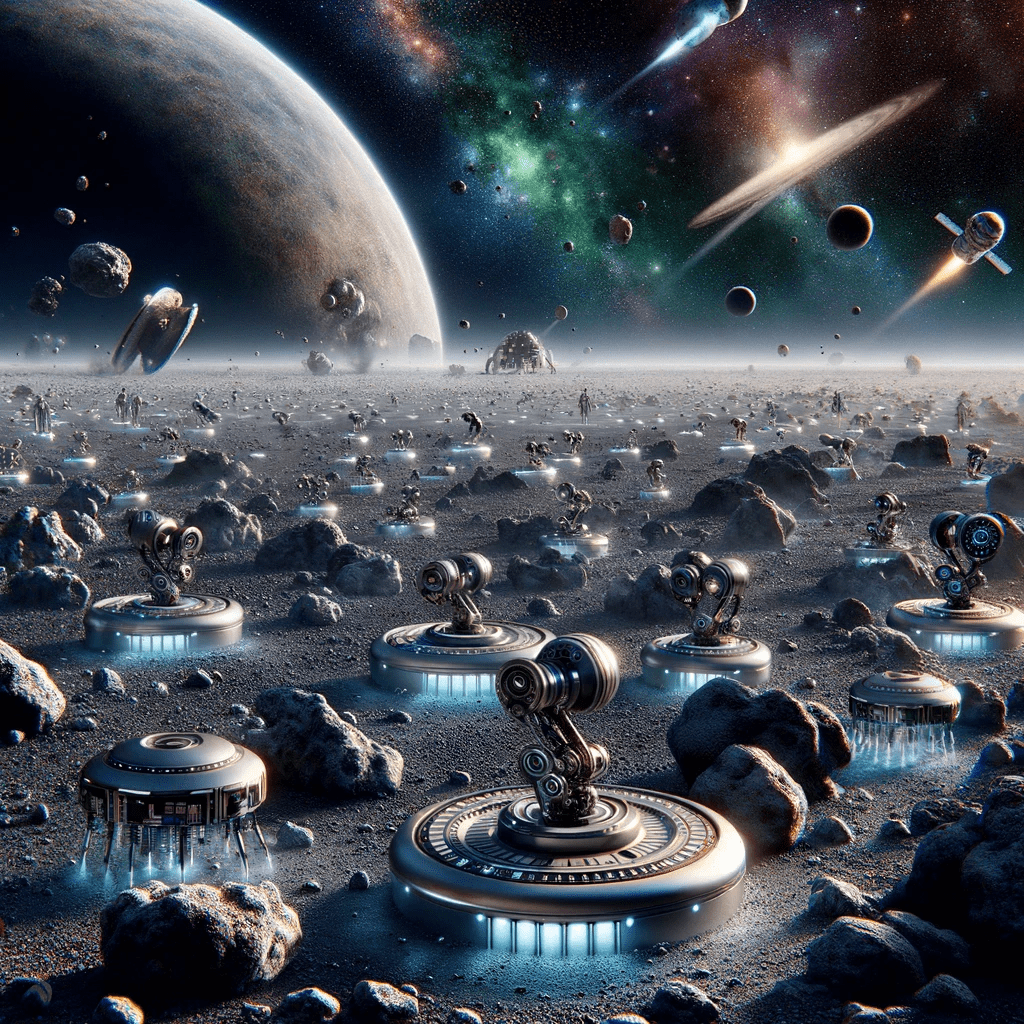Neumann Machines

John von Neumann was a Hungarian-American mathematician and physicist who made significant contributions to the fields of quantum mechanics, computer science, and game theory. One of his most intriguing concepts was the idea of self-replicating probes, known as von Neumann machines or von Neumann probes, which could potentially be used by advanced civilizations for interstellar exploration.
The idea of von Neumann machines was first proposed by von Neumann in the 1950s, as a way to overcome the limitations of traditional space exploration. Traditional space probes require a significant amount of resources and energy to be launched and maintained, and they can only explore a limited area before running out of fuel or experiencing mechanical failures. In contrast, von Neumann machines would be designed to be self-replicating, meaning that they could build copies of themselves from local materials, which would enable them to continue exploring and expanding their reach without the need for additional resources or energy from their creators.
While the concept of von Neumann machines has yet to be implemented or observed in reality, it has been the subject of scientific and philosophical inquiry for many years. Proponents of the concept argue that self-replicating probes could be an effective means of exploring the universe, as they could be designed to adapt and evolve to new environments, as well as being able to repair themselves and continue operating even in the event of damage or other issues.
There are some potential issues and challenges associated with von Neumann machines, however. One of the main concerns is the potential for these machines to malfunction or become uncontrollable, as they could potentially continue replicating and expanding indefinitely, without regard for the ecological or social consequences of their actions. There is also the possibility that von Neumann machines could be used for hostile purposes, such as colonization or warfare, which could have significant ethical and societal implications.
Despite these concerns, many scientists and thinkers continue to explore the potential of von Neumann machines as a means of interstellar exploration and beyond. For example, in his book “The Singularity Is Near,” futurist Ray Kurzweil suggests that self-replicating probes could be used to explore the galaxy and beyond, as they would be able to adapt and evolve to new environments and conditions.
Neumann machines and their potential uses include:
NASA’s Breakthrough Propulsion Physics program has explored the potential of self-replicating probes for interstellar exploration. The program’s “Project Longshot” proposed the use of von Neumann probes as a means of exploring the nearby Alpha Centauri system, although the project was never fully implemented.
(Source: “Project Longshot: An Unmanned Probe To Alpha Centauri,” NASA Technical Report, 1990)
Some scientists have proposed using von Neumann machines to search for signs of extraterrestrial intelligence. By replicating themselves across the galaxy, these machines could potentially search for signals or other evidence of advanced civilizations.
(Source: “The Search for Extraterrestrial Intelligence: A Critical Review,” Seth Shostak, in “Frontiers of Astrobiology,” ed. Chris Impey, 2012)
In his book “The Selfish Gene,” evolutionary biologist Richard Dawkins proposes the idea of “von Neumann machines” as a metaphor for the way in which genes replicate and spread through populations, potentially offering insights into the evolution of life in the universe.
(Source: “The Selfish Gene,” Richard Dawkins, 1976)
Experts and thinkers have offered a range of opinions and ideas about von Neumann machines and their potential applications. While some are optimistic about their potential for exploration and discovery, others are more cautious about the potential ethical and societal implications of creating self-replicating machines that could operate independently.
In his book “Extraterrestrial: The First Sign of Intelligent Life Beyond Earth,” Harvard astrophysicist Avi Loeb argues that the discovery of the interstellar object Oumuamua in 2017, which exhibited unusual properties and behavior, could potentially be explained by the presence of an artificial object created by an extraterrestrial civilization. Loeb suggests that the object could be a “light sail” or other type of probe sent out by an advanced civilization, and that the self-replicating capabilities of von Neumann machines could offer a potential explanation for its origin and behavior.
Other scientists and thinkers have pointed out the many technical and logistical challenges associated with von Neumann machines, such as the need to build machines that are small, efficient, and adaptable to a wide range of environments. Additionally, the potential for unintended consequences and the ethical implications of creating self-replicating machines that could operate independently without human intervention is a topic of ongoing debate and discussion.


